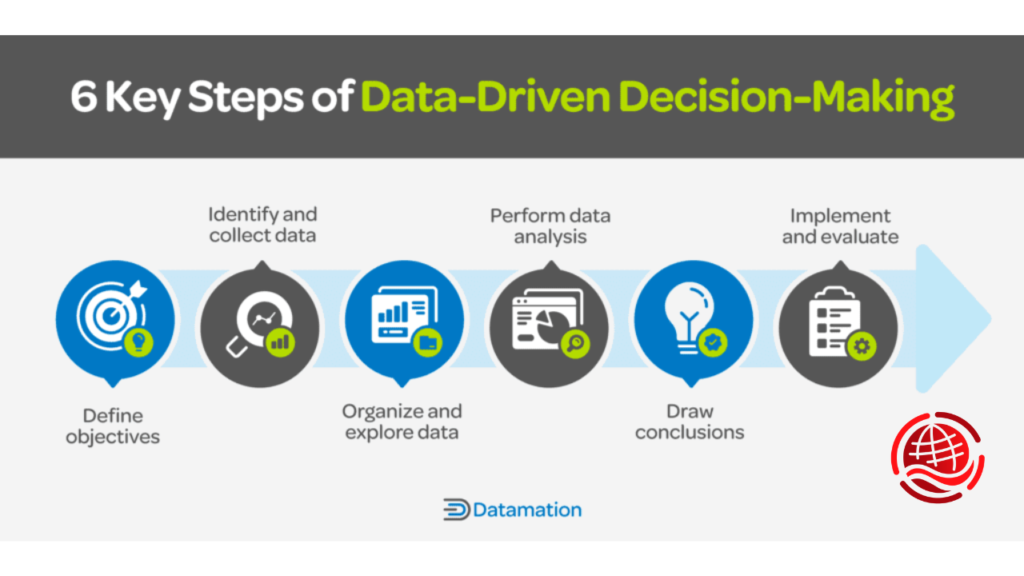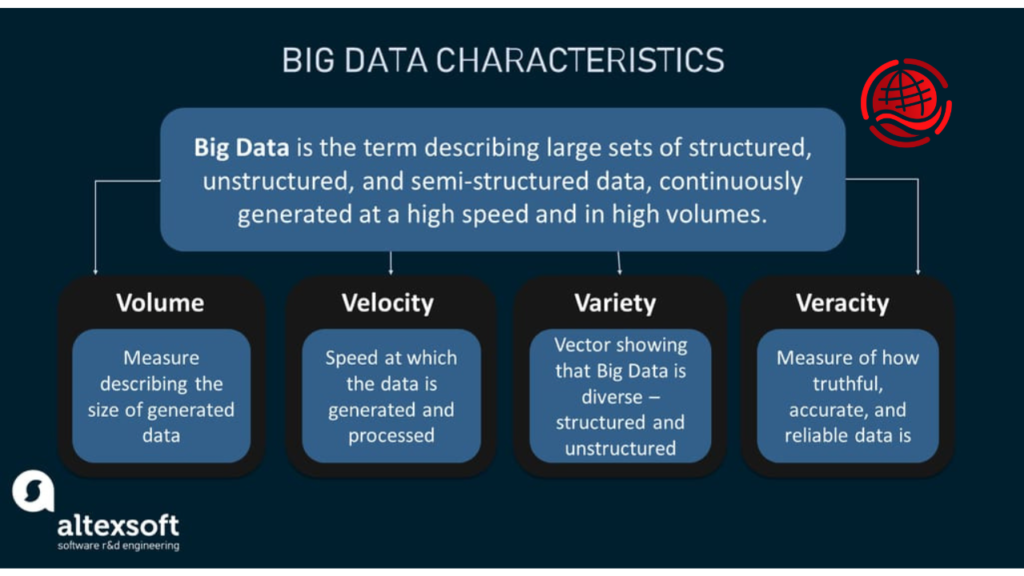In today’s fast-paced digital world, data has become a valuable asset for businesses of all sizes. With the rise of digital marketing, companies have access to vast amounts of data that can provide meaningful insights into consumer behavior and preferences. This wealth of information has led to the emergence of data analytics in digital marketing as a powerful tool for businesses to make informed decisions and achieve success in their marketing efforts.
In this comprehensive guide, we will explore the transformative role of data analytics in digital marketing. We will delve into its benefits, essential techniques, and practical applications, providing you with a multifaceted understanding of how data analytics can enhance your digital marketing strategies and give you a competitive edge.
The Power of Data Analytics in Digital Marketing

Data analytics is the process of collecting, organizing, and analyzing data to identify trends and patterns that can inform decision-making. In the context of digital marketing, data analytics involves extracting insights from various online channels and platforms to optimize marketing campaigns and improve customer experience.
One of the primary benefits of data analytics in digital marketing is its ability to improve customer understanding. By leveraging data analytics, marketers can gain deep insights into their target audience, including demographics, preferences, browsing behavior, and conversion patterns. This knowledge empowers marketers to develop targeted marketing strategies that resonate with specific customer segments, leading to more effective and personalized campaigns.
By harnessing the power of data analytics and utilizing the latest marketing tools, the best digital marketing agencies help businesses optimize their online presence and achieve tangible business growth.
Extracting Meaningful Insights from Digital Marketing Data

To harness the full potential of data analytics in digital marketing, businesses must have a well-defined strategy for collecting and analyzing data. The first step in this process is identifying the relevant data sources, which can include website analytics, social media platforms, email marketing campaigns, and customer relationship management (CRM) systems.
Once the data sources are identified, it is crucial to have a robust data collection and management system in place. This involves implementing tools and processes to gather data from various sources, organize it in a structured manner, and store it securely. Many businesses use Customer Data Platforms (CDPs) or Data Management Platforms (DMPs) to centralize their data and make it easily accessible for analysis.
Next, businesses need to use data analytics tools and techniques to extract meaningful insights from their digital marketing data. These can include data mining, predictive analytics, and machine learning algorithms. By applying these techniques, marketers can identify patterns and trends in consumer behavior, segment their audience, and predict future trends, enabling them to make data-driven decisions for their marketing strategies.
Data-Driven Decision Making for Effective Digital Marketing
In today’s competitive business landscape, making informed decisions based on data is critical to achieving success in digital marketing. Data-driven decision-making involves using data analytics to inform and guide marketing strategies and campaigns. By utilizing data-driven insights, businesses can optimize their efforts and resources, resulting in more effective targeting and higher conversion rates.
Data-driven decision-making also allows businesses to be more agile and responsive to market changes. With real-time data analysis, marketers can monitor campaign performance and make necessary adjustments quickly. For example, if a particular ad is not performing well, they can pause it and redirect resources to more successful campaigns, leading to better ROI.
Moreover, data-driven decision-making can help businesses stay ahead of their competitors. By continuously analyzing data and identifying new trends and opportunities, companies can develop innovative strategies and gain a competitive advantage in the market. This ability to adapt to changing consumer preferences and market dynamics is crucial in today’s ever-evolving digital landscape.
Measuring and Analyzing Digital Marketing Performance
One of the critical components of data analytics in digital marketing is measuring and analyzing performance. This involves tracking and monitoring key metrics to gain insights into the effectiveness of marketing campaigns. By doing so, businesses can identify areas for improvement and make necessary adjustments to optimize their efforts.
Some essential metrics that businesses need to track include website traffic, engagement rates, conversion rates, and customer lifetime value. With website analytics tools like Google Analytics, companies can gain a holistic view of their website’s performance and identify which channels are driving traffic and conversions. Additionally, social media management platforms such as Hootsuite and Sprout Social provide detailed analytics on social media engagement and audience demographics.
Another crucial aspect of measuring and analyzing digital marketing performance is A/B testing. By testing different variations of ads, landing pages, and email subject lines, businesses can determine which elements perform better and make data-driven decisions for future campaigns.
Enhancing Customer Experience through Data Analytics
In today’s consumer-centric world, delivering personalized and seamless experiences is crucial for businesses to succeed. Data analytics plays a critical role in enhancing customer experience by providing insights into customer preferences and behaviours. By tracking and analyzing customer interactions and purchases, businesses can create highly targeted and personalized marketing campaigns that resonate with individual customers.
For example, utilizing data from past purchases can help retailers create personalized product recommendations for customers, leading to higher conversion rates and customer satisfaction. Similarly, understanding customer browsing behavior and preferences can enable businesses to deliver relevant content and promotions, increasing engagement and brand loyalty.
Moreover, data analytics can also improve customer experience by identifying pain points and areas for improvement. By monitoring customer feedback and sentiment analysis, businesses can gain valuable insights into what their customers like and dislike, allowing them to make necessary changes to enhance the overall customer experience.
Leveraging Data Analytics for Competitive Advantage in Digital Marketing
As we have seen, data analytics in digital marketing can provide businesses with a range of benefits, from enhanced customer understanding to data-driven decision-making and improved ROI. By leveraging these advantages, companies can gain a competitive edge in the digital landscape and achieve success in their marketing efforts.
One of the most significant ways data analytics can give businesses a competitive advantage is through the ability to target specific audiences with personalized marketing campaigns. By analyzing data on customer behavior and preferences, companies can create tailored content and promotions that speak directly to their audience’s needs and interests.
Data analytics also allows businesses to optimize their marketing budget by focusing resources on the most effective channels and campaigns. By continually monitoring and analyzing performance, marketers can identify which channels are driving the highest conversions and allocate resources accordingly, resulting in a better return on investment.
Moreover, data analytics can help businesses stay ahead of their competitors by identifying new trends and opportunities early on. By continuously tracking and analyzing data, companies can adapt their strategies to changing market dynamics and consumer preferences, giving them an edge over their competitors.
Conclusion
In conclusion, data analytics plays a pivotal role in digital marketing, providing businesses with a wealth of insights and opportunities to improve their strategies and drive success. From enhancing customer experience to gaining a competitive advantage and achieving better ROI, data analytics has become an integral part of modern-day marketing.
By leveraging data analytics, businesses can understand their customers better, make data-driven decisions, measure and analyze performance, and enhance customer experience. With its transformative power, data analytics is shaping the future of digital marketing, and businesses that embrace it will undoubtedly have a competitive edge in the ever-evolving digital landscape.
Read Also: Deconstruct EHR Implementation Costs and Outsource IT Support.



